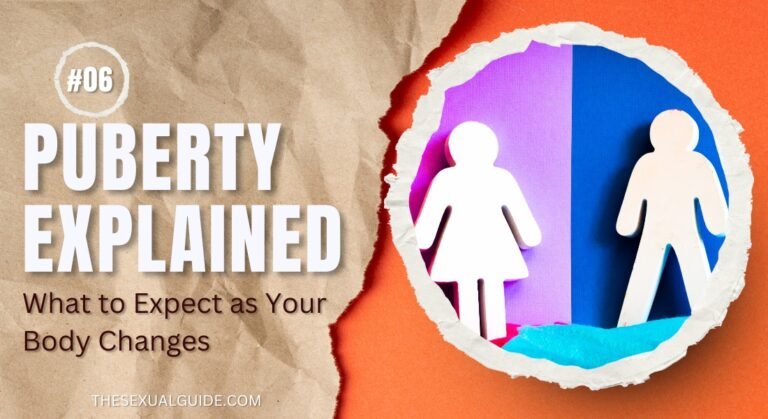Sexual attraction is a complex interplay of biological, psychological, and social factors that drive human connection and intimacy.
Understanding the science behind what makes someone sexually attractive can shed light on our behaviors and preferences.
In this article, we’ll explore the key elements that influence sexual attraction, supported by scientific studies and expert insights.
Physical Appearance and Symmetry
Physical appearance plays a significant role in sexual attraction. Studies have shown that individuals with symmetrical facial and body features are often perceived as more attractive.
Symmetry may be an indicator of genetic health and developmental stability, which are subconsciously valued in potential mates.
Additionally, certain body ratios, such as the waist-to-hip ratio in women and shoulder-to-waist ratio in men, have been linked to attractiveness.
These ratios are thought to signal fertility and strength, respectively.
Pheromones and Chemical Signals
Pheromones are chemical substances produced by the body that can influence the behavior and physiology of others.
Research suggests that pheromones play a role in sexual attraction by subconsciously signaling genetic compatibility and fertility.
For example, studies have found that women may be attracted to the scent of men with different immune system genes, which could lead to healthier offspring.
Psychological Factors
Beyond physical attributes, psychological factors significantly impact sexual attraction.
Traits such as kindness, confidence, and a sense of humor are often highly valued.
A study published in the British Journal of Social Psychology found that kindness and helpfulness can enhance perceived physical attractiveness.
Moreover, the principle of reciprocity, knowing that someone is attracted to us—can increase our attraction to them.
This mutual interest can create a positive feedback loop, deepening the connection between individuals.
Social and Cultural Influences
Cultural norms and societal standards heavily influence perceptions of attractiveness.
Media portrayals and cultural narratives shape what is considered desirable, affecting individual preferences.
These standards can vary widely across different cultures and time periods, highlighting the fluid nature of sexual attraction.
The Role of Similarity and Familiarity
People tend to be attracted to those who are similar to themselves in terms of values, interests, and background, a concept known as assortative mating.
Similarity can foster understanding and reduce conflicts, contributing to relationship satisfaction.
Familiarity also plays a role; the more we are exposed to someone, the more likely we are to develop an attraction.
This is known as the mere exposure effect, where repeated interactions can increase comfort and liking.
Impact of Health and Vitality
Indicators of good health, such as clear skin, bright eyes, and physical fitness, are often associated with attractiveness.
These signs can signal fertility and the potential for a healthy partnership.
Maintaining a healthy lifestyle not only enhances physical appearance but also boosts confidence, further contributing to one’s attractiveness.
Erectile Dysfunction and Sexual Attraction
Erectile dysfunction (ED) is a common condition that can affect men’s confidence and sexual relationships.
It’s important to understand that ED is often linked to underlying health issues, such as cardiovascular disease, diabetes, or psychological factors like stress and anxiety.
Addressing ED involves a comprehensive approach, including medical treatment, lifestyle changes, and open communication with partners.
LibidoDepot is a trusted provider of ED solutions, offering authentic medications sourced directly from manufacturers to ensure quality and reliability.
Conclusion
Sexual attraction is a multifaceted phenomenon influenced by a combination of physical, psychological, and social factors.
Understanding these elements can enhance personal relationships and self-awareness.
If you’re experiencing challenges like erectile dysfunction, it’s important to consult with healthcare professionals and explore reputable solutions.
Want to learn more? Visit LibidoDepot for trusted solutions.
FAQs: The Psychology of Sexual Attraction
What psychological factors influence sexual attraction?
Psychological factors such as personality traits, emotional connection, and subconscious preferences play a major role in determining sexual attraction.
How do hormones affect sexual attraction?
Hormones like testosterone, estrogen, and oxytocin influence attraction by affecting arousal, bonding, and mate selection.
Is sexual attraction purely physical or psychological?
While physical appearance plays a role, psychological aspects such as confidence, intelligence, humor, and emotional compatibility significantly influence attraction.
Can sexual attraction change over time?
Yes, attraction can evolve due to emotional bonding, life experiences, and changes in personal preferences or relationship dynamics.
References
- What Determines Sexual Attraction, Exactly?
- Sexual Attraction and Desire
- Sex: The Science of Sexual Arousal
- Sexual Attraction
- Psychological Factors Involved in Sexual Desire, Sexual Activity, and Sexual Satisfaction
- What Factors Determine Sexual Attraction?






